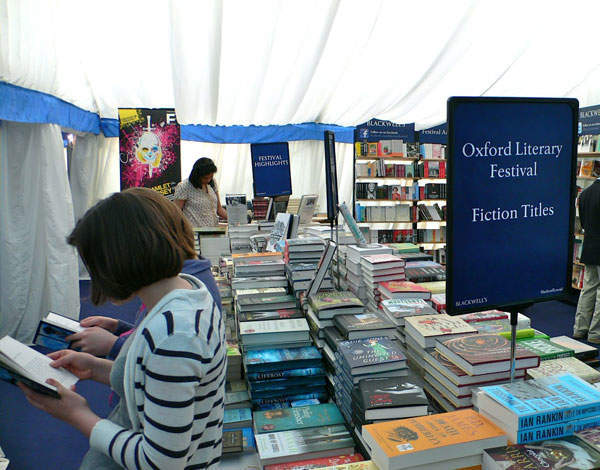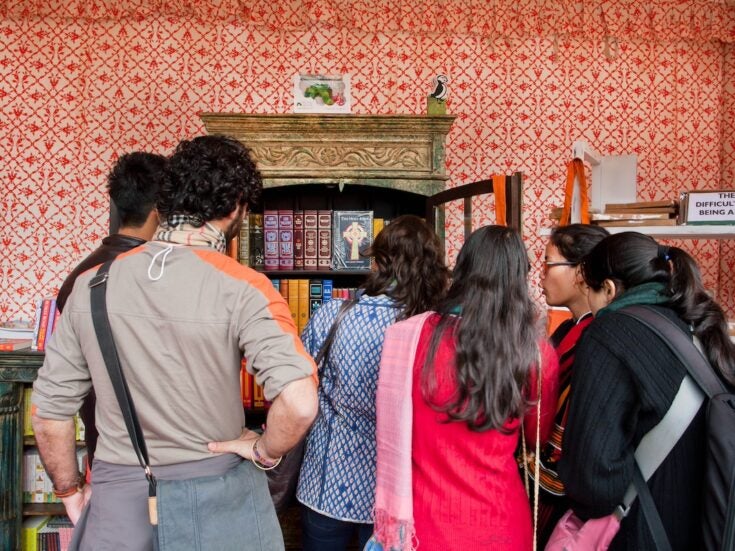

Over the past few years, they’ve become a quintessential part of British culture. They come in all shapes, sizes and styles and I for one have picked my way through most of them. Sometimes as a visitor; more often, though, as a member of the team itself. The smallest villages and the largest cities proudly celebrate their own literary festival.
Oxford, my hometown, lays claim to one of the biggest, most distinctive lit fests of all. I first became involved at the age of ten, finding myself in the green room, blissfully unaware of the big names that casually floated past. For a ten-year old it was, unsurprisingly, quite boring. As such, I took matters into my own hands serving coffee and tea, which – perhaps rather worryingly quickly – became whisky and G&Ts.
Read more on books from Spear’s
From then on my festival roles differed hugely, from working in the PR department to packing 300+ goodie bags for dinners. Days on end were spent carrying boxes and bags through back alleys of Oxford colleges, filling dainty rooms and lifts with goodie bags. These bags were plastered with a quotation from To Kill a Mockingbird: ‘You never really understand a person until you consider things from his point of view… Until you climb inside of his skin and walk around in it.’ (Or lift 300 boxes in it.)
This year’s festival in March started slightly shakily for me. Working in a crowded greenroom, I managed to knock an author’s cup of coffee into her bag; understandably she was not best pleased and was all too willing to tell me. I asked her if she wanted another cup, but before I could get to the end of the question, I saw her face and quickly changed tack. I thought that was the end of it, until the next morning: said author had tweeted about me.
A few days later, Jeremy Paxman came to give a talk at the Sheldonian Theatre. I got the chance to sit opposite him at lunch, but by the end of my first sentence he stopped me and scowled, then told me coldly that I had said ‘less’ instead of ‘fewer’. I thought I could redeem myself later on when I escorted him to his event, but this time he told me that the phrase ‘optimistically hoped’ was stupid.
My most vivid memory is of escorting the screenwriter Julian Fellows to his event. I was terrified of taking him, given my previous encounters, but he was one of the most personable people I have encountered. He was a stark contrast with the many who make ridiculous demands.
There was a whole afternoon when I was tasked with smuggling crockery out of a college and across Oxford (all is returned, I might add), as a certain someone was insisting on a full tea set on stage for his event, but was equally insistent that he should under no circumstances have to meet or engage in any social interaction with anyone from the festival team. There’s also an author who, as I escorted them across central Oxford, proceeded to direct obscenities at the fast food shops.
Working at five literary festivals right across the country has given me the best and comprehensive lesson in anthropology, be it studying volunteers, photographers, attendees or of course authors. Although I’ve found that on the most part speakers conform to what you’d expect, no amount of experience can prepare you for the odd deception, whether a smiling face in the programme materialises as a prima donna – who only fills ten seats – or, more enjoyably, a humble genius who fills a thousand.
And though you may not be able to tell a book by its cover, there seems to be a genuine correlation between the sense you get of an author from their works and how they are as a person. Even if that means them cursing at KFC.







